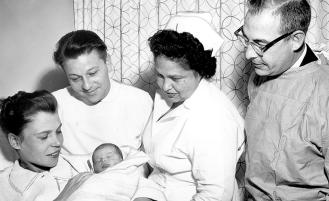When to Seek Primary, Urgent or Emergency Care
For most medical problems you should go to your regular healthcare provider first. You get the best care because they know you and your medical history. But when it’s 2 p.m. on a Sunday and that pesky cough and sore throat you’ve had all week still haven’t subsided, where should you go?
Primary Care
The best place to get care is your primary care clinic for common illnesses, minor injuries and routine health exams.
Make an appointment with your clinic for:
- Common illnesses such as colds, flu, ear aches, sore throats, migraines, fever or rashes.
- Minor injuries such as sprains, back pain, minor cuts and burns, minor broken bones or minor eye injuries.
- Regular physicals, prescription refills, vaccinations and screenings.
- Advice about non-emergent health problems.
Overlake Clinics primary care locations have a physician on-call 24/7.
Urgent Care
When your healthcare provider is not available, urgent care provides attention for non-life threatening medical problems or problems that could become worse if you wait.
Go to urgent care for:
- Common illnesses such as colds, the flu, ear aches, sore throats, migraines, fever or rashes.
- Minor injuries such as sprains, back pain, minor cuts and burns, minor broken bones or minor eye injuries.
Overlake’s urgent care clinics provide walk-in appointments.
Emergency Care
The emergency department is for very serious or life threatening problems.
If you are experiencing any of the following symptoms, don’t wait! Call 911 or get to your nearest hospital emergency room.
- Chest pain.
- Severe abdominal pain.
- Coughing or vomiting blood.
- Severe burns.
- Deep cuts or bleeding that won’t stop.
- Sudden blurred vision.
- Difficulty breathing or shortness of breath.
- Sudden dizziness, weakness, or loss of coordination or balance.
- Numbness in the face, arm or leg.
- Sudden, severe headache (not a migraine).
- Seizures.
- High fevers.
- Any other condition you believe is life threatening.








